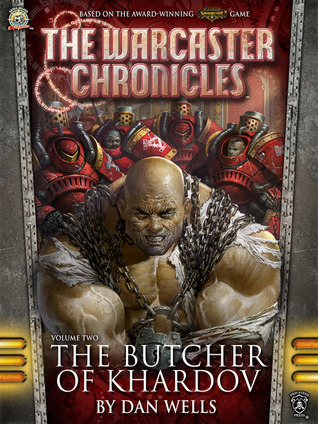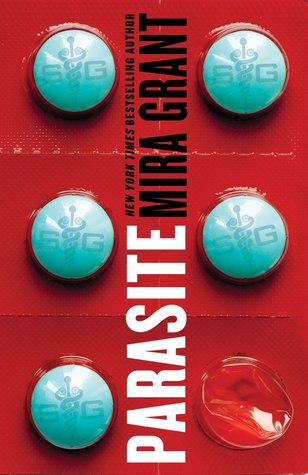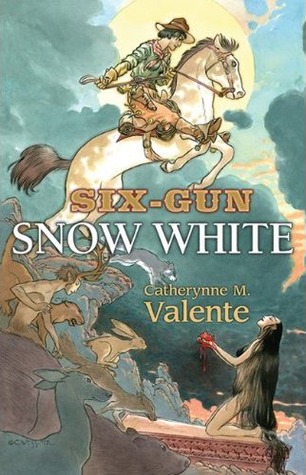My 2014 Hugo Reviews and Predictions
Jul. 31st, 2014 06:23 pmI discuss my Hugo votes and predictions on ![[livejournal.com profile]](https://www.dreamwidth.org/img/external/lj-community.gif) bookish.
bookish.
"Equoid" is set shortly before the events of the "The Fuller Memorandum". It's the longest non-novel-length Laundry story so far. And it explains (among other things) precisely what H. P. Lovecraft saw behind the wood-shed when he was 14 that traumatized him for life, the reproductive life-cycle of unicorns, and what really happened on Cold Comfort Farm.

This all-new definitive guide to writing imaginative fiction takes a completely novel approach and fully exploits the visual nature of fantasy through original drawings, maps, renderings, and exercises to create a spectacularly beautiful and inspiring object. Employing an accessible, example-rich approach, Wonderbook energizes and motivates while also providing practical, nuts-and-bolts information needed to improve as a writer. Aimed at aspiring and intermediate-level writers, Wonderbook includes helpful sidebars and essays from some of the biggest names in fantasy today, such as George R. R. Martin, Lev Grossman, Neil Gaiman, Michael Moorcock, Catherynne M. Valente, and Karen Joy Fowler, to name a few.

Only a handful of people in the world know that mankind's magic comes from a living creature, and it is a refugee from another universe. The Power showed up here in the 1850s because it was running from something. Now it is 1933, and the Power's hiding place has been discovered by a killer. It is a predator that eats magic and leaves destroyed worlds in its wake. Earth is next.
Former private eye Jake Sullivan knows the score. The problem is, hardly anyone believes him. The world's most capable Active, Faye Vierra, could back him up, but she is hiding from forces that think she is too dangerous to live. So Jake has put together a ragtag crew of airship pirates and Grimnoir knights - and set out on a suicide mission to stop the predator before it is too late.

His blind fury is infamous, his strength without rival, but the legend of the man known as the Butcher of Khardov was forged in a crucible of pain...
The legacy of the massacre near Boarsgate at the hand of the warcaster Orsus Zoktavir has followed him his whole life—but it is another memory that fuels both his rage and his will to live. Before he was one of Khador’s most potent weapons he was simply a young man striving to make a life for himself, and for his beloved, free of the violence that came so easily to him. Her gentle presence helps him quell his simmering temper, but fate changes everything, sweeping him up in events that would lead to grief and madness.
Learn the tragic history of Orsus Zoktavir and plumb the depths of his rage in The Butcher of Khardov.
Wakulla Springs. A strange and unknown world, this secret treasure lies hidden in the jungle of northern Florida. In its unfathomable depths, a variety of curious creatures have left a record of their coming, of their struggle to survive, and of their eventual end. Twenty-five thousand years after they disappeared from the face of the Earth, the bones of prehistoric mastodons, giant armadillos, and other primeval monsters have been found beneath the seemingly placid surface of the lagoon. The visitor to this magical place enters a timeless world of mystery.

The year is AD 7000. The human species is extinct - for the fourth time - due to its fragile nature. Krina Alizond-114 is metahuman, descended from the robots that once served humanity. She’s on a journey to the water-world of Shin-Tethys to find her sister Ana. But her trip is interrupted when pirates capture her ship. Their leader, the enigmatic Count Rudi, suspects that there’s more to Krina’s search than meets the eye.
He’s correct: Krina and Ana each possess half of the fabled Atlantis Carnet, a lost financial instrument of unbelievable value - capable of bringing down entire civilizations. Krina doesn’t know that Count Rudi suspects her motives, so she accepts his offer to get her to Shin-Tethys in exchange for an introduction to Ana. And what neither of them suspects is that a ruthless body-double assassin has stalked Krina across the galaxy, ready to take the Carnet once it is whole - and leave no witnesses alive to tell the tale…

When my daughter Nicole was an infant, I read an essay suggesting that it might no longer be necessary to teach children how to read or write, because speech recognition and synthesis would soon render those abilities superfluous. My wife and I were horrified by the idea, and we resolved that, no matter how sophisticated technology became, our daughter’s skills would always rest on the bedrock of traditional literacy.

The cold autumn day was slowly drawing to a close. The pallid sun was descending, its ineffective rays no longer sufficient to hold it up in the sky or penetrate the northern winds that seemed to gather strength with the whispering promise of the incipient dark. The first of the two moons was already visible high above the mountains. Soon Arbhadis, Night's mistress, would make herself known as well.

On the sensors of The Cinnabar Mansions, the ships all appeared small and diminished, like toy models or avatars--things Lan Nhen could have held in the palm of her hand and just as easily crushed. As the sensors' line of sight moved--catching ship after ship in their field of view, wreck after wreck, indistinct masses of burnt and twisted metal, of ripped-out engines, of shattered life pods and crushed shuttles--Lan Nhen felt as if an icy fist were squeezing her heart into shards. To think of the Minds within--dead or crippled, forever unable to move...
The best luck in the world--she and Jason and her new flat, and her old haunts, not far away from the Institution-- though she wasn't sure, really, if that last was a blessing--if she wanted to remember the years Matron had spent hammering proper behaviour into them: the deprivations whenever they spoke anything less than perfect Galactic, the hours spent cleaning the dormitory's toilets for expressing mild revulsion at the food; or the night they'd spent shut outside, naked, in the growing cold, because they couldn't remember which Galactic president had colonised Longevity Station--how Matron had found them all huddled against each other, in an effort to keep warm and awake, and had sent them to Discipline for a further five hours, scolding them for behaving like wild animals.

Dorothy lived in the midst of the great Kansas prairies, with Uncle Henry, who was a farmer, and Aunt Em, who was the farmer’s wife. She met me, she went on to say, when I was working next door to their farm under the shadow of the rocket gantry for the First Mars Expedition.
Nathaniel and I’d made the decision not to have children. They aren't conducive to a life in space, you know? I mean there’s the radiation, and the weightlessness, but more it was that I was gone all the time. I couldn't give up the stars... but I found myself wishing that we hadn't made that decision. Part of it was wishing that I had some connection to the next generation. More of it was wanting someone to share the burden of decision with me.

Mission Control looked more like a penny arcade than a command center. No long desks populated with keyboards and computer displays. No super-sized jumbo screens on the walls. No bespectacled engineers with headsets perched on balding scalps. There were only control booths arrayed uniformly in neat bunches. And in each booth sat or stood an Operator, either male or female. Most of them were United States Navy or United States Air Force personnel—the facility being a joint USN-USAF operation. As the United States Army’s latest exchange officer to the Orbital Defense Initiative Station, I stuck out like a sore thumb. Both because of my rank, and because of my uniform.


"Instruction," I corrected her. "And it’s not even anything so formal as that. You ought to know as well as anyone, if you’ve earned your commission recently, that the mantes are an utterly atheistic people. They cannot even conceive of a God, nor a soul, nor do they understand anything about Earth’s varied and flavorful religious history."

The Wheel of Time turns and Ages come and go, leaving memories that become legend. Legend fades to myth, and even myth is long forgotten when the Age that gave it birth returns again. In the Third Age, and Age of Prophecy, the World and Time themselves hang in the balance. What was, what will be, and what is, may yet fall under the Shadow.

A decade in the future, humanity thrives in the absence of sickness and disease.
We owe our good health to a humble parasite - a genetically engineered tapeworm developed by the pioneering SymboGen Corporation. When implanted, the Intestinal Bodyguard worm protects us from illness, boosts our immune system - even secretes designer drugs. It's been successful beyond the scientists' wildest dreams. Now, years on, almost every human being has a SymboGen tapeworm living within them.
But these parasites are getting restless. They want their own lives . . . and will do anything to get them.
 |
 |
 |

From New York Times bestselling author Catherynne M. Valente comes a brilliant reinvention of one the best known fairy tales of all time. In the novella Six-Gun Snow White, Valente transports the title's heroine to a masterfully evoked Old West where Coyote is just as likely to be found as the seven dwarves.
A plain-spoken, appealing narrator relates the history of her parentsóa Nevada silver baron who forced the Crow people to give up one of their most beautiful daughters, Gun That Sings, in marriage to him. With her mother's death in childbirth, so begins a heroine's tale equal parts heartbreak and strength. This girl has been born into a world with no place for a half-native, half-white child. After being hidden for years, a very wicked stepmother finally gifts her with the name Snow White, referring to the pale skin she will never have. Filled with fascinating glimpses through the fabled looking glass and a close-up look at hard living in the gritty gun-slinging West, readers will be enchanted by this story at once familiar and entirely new.

On a remote, icy planet, the soldier known as Breq is drawing closer to completing her quest.
Breq is both more than she seems and less than she was. Years ago, she was the Justice of Toren--a colossal starship with an artificial intelligence linking thousands of corpse soldiers in the service of the Radch, the empire that conquered the galaxy.
An act of treachery has ripped it all away, leaving her with only one fragile human body. And only one purpose--to revenge herself on Anaander Mianaai, many-bodied, near-immortal Lord of the Radch.
From debut author Ann Leckie, Ancillary Justice is a stunning space opera that asks what it means to be human in a universe guided by artificial intelligence.